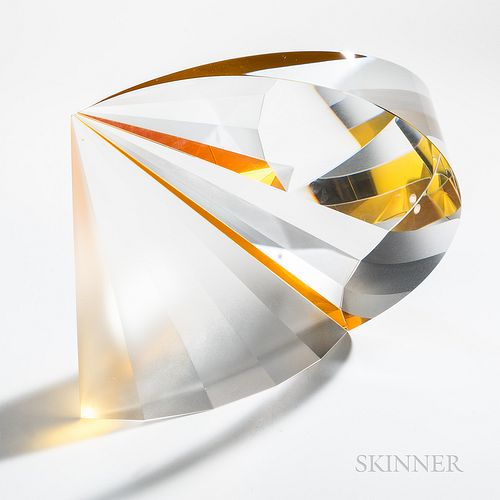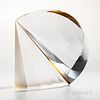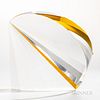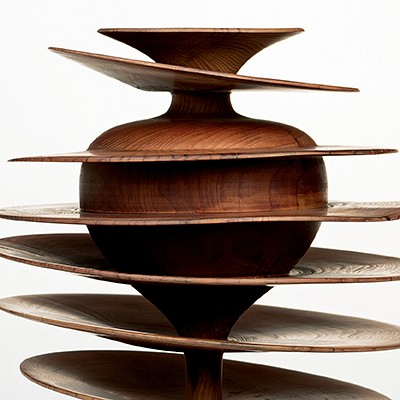Martin Rosol (Czech/American, b. 1963) Studio Art Glass Sculpture, late 20th century, sand-blasted, cut and polished glass, etched sign
Lot 1426
About Seller
Bonhams Skinner
274 Cedar Hill Street
Marlborough, MA 01752
United States
Founded over four decades ago, Bonhams Skinner offers more than 60 auctions annually. Bonhams Skinner auctions reach an international audience and showcase the unique, rare, and beautiful in dozens of categories, including the fine and decorative arts, jewelry, modern design, musical instruments, sc...Read more
About Auction
Catalog Only
By Bonhams Skinner
Dec 8, 2020 - Dec 17, 2020
Set Reminder
2020-12-08 12:00:00
2020-12-17 19:00:00
America/New_York
Bidsquare
Bidsquare : 20th Century Design
https://www.bidsquare.com/auctions/skinner/20th-century-design-6191
Our December sale offers over 500 lots for the discerning collector, dealer, or homeowner seeking furniture, artwork, and decorative objects spanning the 20th and early 21st centuries. Bonhams Skinner bidsquare@bonhamsskinner.com
Our December sale offers over 500 lots for the discerning collector, dealer, or homeowner seeking furniture, artwork, and decorative objects spanning the 20th and early 21st centuries. Bonhams Skinner bidsquare@bonhamsskinner.com
- Lot Description
Martin Rosol (Czech/American, b. 1963) Studio Art Glass Sculpture, late 20th century, sand-blasted, cut and polished glass, etched signature and number to edge "Martin Rosol 1439," ht. 11 1/2, wd. 12, dp. 5 in.
Note: Native Czechoslovakian Martin Rosol, who became a naturalized American citizen in 1994, traveled a long road in pursuit of his dream to be a glass artist. Rosol’s earliest training came in his native country before Vaclav Havel and the 1989 Velvet Revolution transformed it from a communist regime to today’s Czech Republic.
Martin Rosol attended the School for Arts and Crafts in Prague, 1973-1976, then trained in coldworking at a company school designed to develop craftsmen to execute limited edition designs for art glass manufacturers. He became adept at executing functional objects by day, then using the day’s leftover materials to create more abstract pieces at night. The communist government prohibited Rosol from selling his art but soon he was exhibiting in Europe and the United States. In 1981, Rosol was awarded the Bavarian State Prize for Glass Sculpture, an award given out each year in Munich for outstanding contributions in decorative art.
During Martin Rosol’s first trip to the United States in 1986 on a five-month visitor’s visa, he worked with an established glass artist in New York State setting up the machines and assisting in his studio. He spent his spare time on his own work and sold at Holsten Galleries in Stockbridge. Upon his return to Czechoslovakia that summer, Rosol determined he would find a way to immigrate to the United States permanently, traveling with his family from Hungary, to Yugoslavia, Austria, and Germany, where they spent two years waiting for visas. Eventually they settled in Massachusetts, where Rosol lives and works today.Condition
Any condition statement is given as a courtesy to a client, is only an opinion and should not be treated as a statement of fact. Skinner Inc. shall have no responsibility for any error or omission. The absence of a condition statement does not imply that the lot is in perfect condition or completely free from wear and tear, imperfections or the effects of aging. - Shipping Info
-
Please visit http://www.skinnerinc.com/services/payment-and-shipping/ for information regarding the collection of items purchased at auction.
-
- Buyer's Premium



 EUR
EUR CAD
CAD AUD
AUD GBP
GBP MXN
MXN HKD
HKD CNY
CNY MYR
MYR SEK
SEK SGD
SGD CHF
CHF THB
THB













